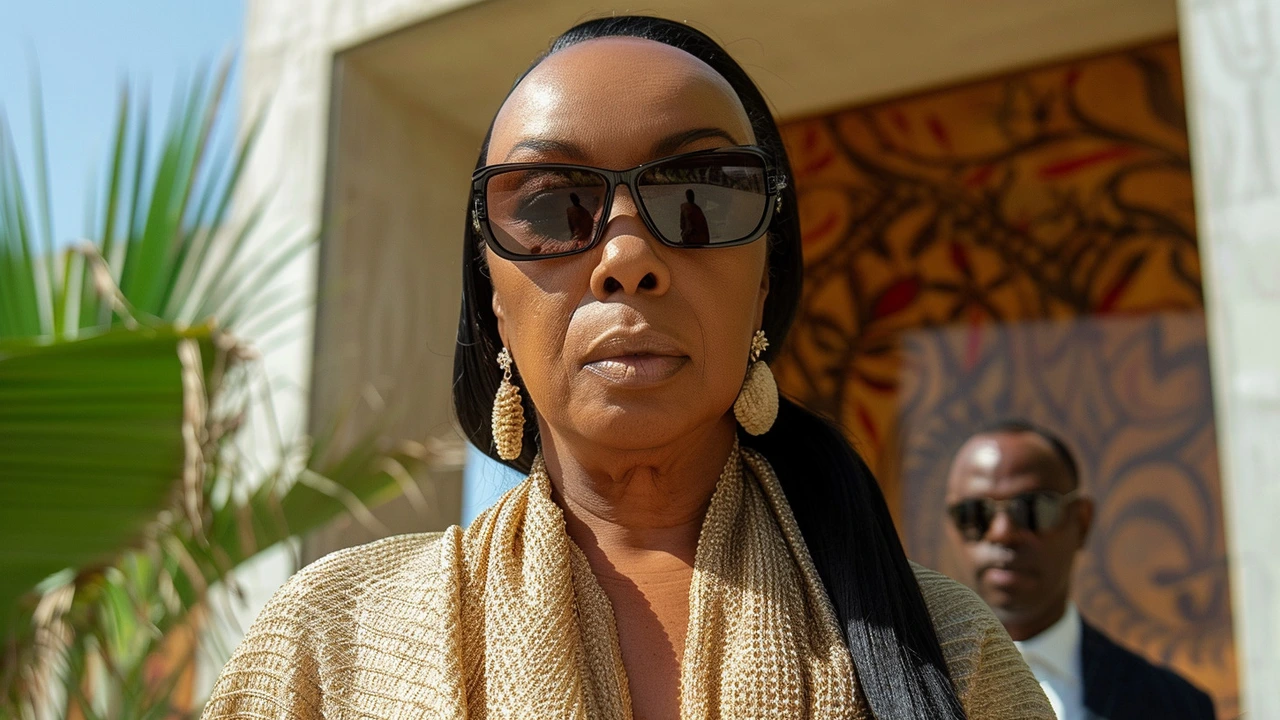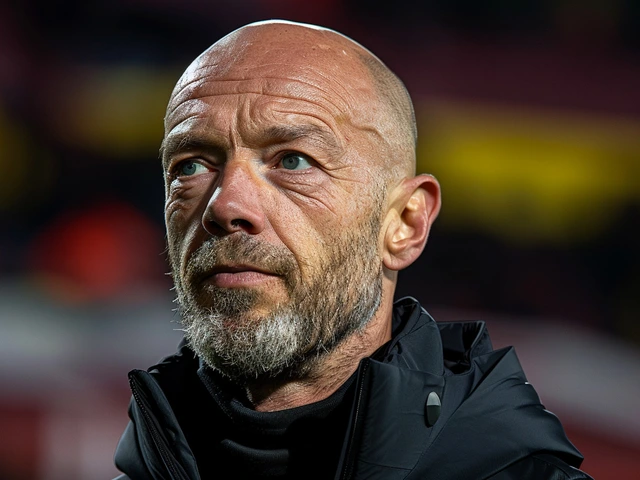Omoyele Sowore Calls for Movie on Diezani Alison-Madueke’s Controversies
In a teaser for Chude Jideonwo’s forthcoming documentary titled 'Is It Your Money?: The Story of Diezani Alison-Madueke,' Omoyele Sowore, a well-known former presidential candidate, has sparked conversation by suggesting that the extraordinary events surrounding Diezani Alison-Madueke’s tenure as Nigeria's Minister of Petroleum Resources merit their own cinematic narrative. The premise of his proposal stems from not just the gravity of the allegations but the intricate and almost surreal nature of the events that unfolded during her tenure from 2010 to 2015.
Sowore underscored the dramatic potential of Diezani’s story by revealing a particularly attention-grabbing allegation: she supposedly used Nigerian government funds to purchase a luxurious yacht. This wasn’t just any yacht—it was later rented out to high-profile individuals, including American music royalty Jay-Z and Beyoncé. The assertion immediately conjures imagery reminiscent of Hollywood blockbusters, drawing parallels to tales of greed, power, and ostentation.
The Alleged Extravagance and Wider Implications
The yacht scenario is just the tip of the iceberg. Diezani’s tenure as the head of Nigeria’s petroleum ministry is fraught with numerous allegations and accusations, painting a broader picture of corruption, mismanagement, and lavish spending. She served under President Goodluck Jonathan, and during these years, several probes and investigative reports pointed toward a series of corruption cases and embezzlement of public funds.
Omoyele Sowore’s call for a film adaptation serves a dual purpose: it acts as a powerful critique of the past government’s failures and as a reminder of the pressing need for accountability in public office. Nigeria, being Africa’s largest oil producer, has seen significant wealth generated from its petroleum resources. However, the misappropriation of these funds has often led to untold stories of suffering and infrastructural deficits faced by the average Nigerian.
The Lucrative Oil Sector: Blessing or Curse?
The Nigerian oil sector has always been a double-edged sword. On one hand, it brings considerable revenue, but on the other, it has been a fertile ground for corruption and financial misconduct. Diezani Alison-Madueke's case is a testament to the latter. Allegations against her include not just the infamous yacht purchase but also acquisition of multimillion-dollar properties across different continents, involvement in money laundering, and stashing away significant amounts in foreign banks.
Her story exemplifies how public officials can exploit their positions to not only enrich themselves but also perpetuate a culture of impunity. It raises questions about the effectiveness of existing laws and institutions meant to curb such excesses. Over the years, Nigeria has seen numerous anti-corruption campaigns, yet the cycle of wrongdoing persists. Sowore’s remarks may well ignite a renewed discourse on what needs to change fundamentally to prevent another Diezani from emerging.

From Documentaries to Blockbusters
While Chude Jideonwo’s documentary aims to explore the details and impact of Diezani’s actions, translating this episode into a full-fledged motion picture might reach a broader audience. Historically, films based on real-life events have had the power to shape public opinion and influence policy changes. By humanizing and dramatizing events, they often provide a more relatable and emotionally engaging way of understanding complex issues.
Sowore’s suggestion isn’t without precedent. Political dramas and scandals have long provided rich fodder for filmmakers. From “All the President’s Men,” which chronicled the Watergate scandal, to “The Big Short,” detailing the financial crisis of 2008, such films have not only won critical acclaim but also brought critical issues to the fore, prompting debates and, in some cases, leading to tangible reform.
Diezani Alison-Madueke: Corruption Charges and Legal Battles
As it stands, Diezani Alison-Madueke is enveloped in numerous legal battles. Both in Nigeria and overseas, especially in the United Kingdom, where she had sought medical treatment, she faces multiple counts of corruption. These charges span from money laundering to bribery and fraud. During such trials, and hearings, stark truths about the depth and breadth of corruption come to light, furthering the narrative Sowore suggests.
The legal repercussions for Diezani are ongoing, with assets being seized and investigations still active. Yet, the slow pace of judicial proceedings often leads to a public feeling of disillusionment and frustration. Questions about the effectiveness of national and international justice systems often arise, especially when high-profile cases seemingly drag on interminably.
A film could potentially magnify these frustrations, highlighting the inconsistencies and gaps in the fight against corruption. By depicting real-life consequences and personalizing the implicating decisions, such a movie could stimulate public demand for faster, more effective judicial processes.
The Power of Storytelling
Human societies have always relied on storytelling to pass down knowledge, culture, and values. Whether through oral traditions, literature, or film, stories shape perceptions and influence behaviors. In the modern age, film remains one of the most potent mediums to achieve this.
The suggestion by Sowore to create a movie about Diezani’s story isn’t merely about entertainment; it’s about underscoring the grievous nature of corruption and its wide-ranging impacts. It provides an opportunity to educate, inform, and perhaps catalyze change. The potential film could serve as a cautionary tale for public officials and as a rallying cry for citizens to demand greater accountability and transparency.

Is Nigeria Ready for Such a Narrative?
The prospect of a film on this scale also raises questions about Nigeria’s readiness to confront its own stories. For a nation often plagued by political controversies and corruption scandals, it can be both therapeutic and challenging to see these stories play out on the big screen. However, it’s essential for growth and acceptance to acknowledge and reflect upon these dark chapters.
Sowore’s proposal might be a call to the Nigerian film industry, otherwise known as Nollywood, to step up and take on narratives that matter deeply to the nation's collective consciousness. Nollywood has enjoyed decades of success with dramatic and often fictional storytelling. Adaptations of real-life events, especially a story as charged as Diezani’s, could mark a new chapter in its evolution, potentially pushing it onto a more globally recognized stage.
Conclusion
Omoyele Sowore’s call for a movie on Diezani Alison-Madueke’s tumultuous tenure as Nigeria's Minister of Petroleum Resources is a profound suggestion. It’s an invitation to leverage the power of storytelling to hold a mirror up to society, to confront uncomfortable truths, and to engage a broader audience in discussions about corruption and accountability. Whether this film ever comes to fruition remains to be seen, but the conversation it has sparked already serves as a significant step towards reflection and, hopefully, reform.




Ever wonder how power morphs into myth when the corridors of oil and politics collide? The tale of a minister buying a yacht feels like a modern Iliad, where the gods are shareholders and the heroes are whistleblowers. In the shadows of Lagos, ambition feeds on the very fuel that lights the nation, and the narrative becomes a mirror for our own greed. If cinema can sharpen that reflection, perhaps the audience will finally see the cost of unchecked opulence.
From a production standpoint, Nollywood has the infrastructure to tackle such a sprawling saga, especially now that streaming platforms demand locally rooted stories with global appeal. The documentary format already lays the groundwork; expanding to a feature film could tap into cinema‑ready talent, seasoned directors, and a budget that matches the scale of the scandal. Moreover, integrating factual investigative footage can preserve authenticity while dramatizing key moments to keep viewers engaged.
The project demands rigorous research. It must align with factual verification. The narrative should avoid sensationalism. A disciplined approach will lend credibility.
It's fascinating how a single yacht can become a symbol for an entire era of excess. When people see that on screen, they'll finally connect the dots between oil wealth and everyday struggles.
Sure, turning this mess into a blockbuster will solve all of Nigeria's corruption woes 😂. Hollywood loves drama, but a film won't magically retrieve stolen funds 💸. Real change needs courts, not cameras. Still, if it raises awareness, maybe it's a step forward 🍿.
Your sarcasm overlooks the systemic entrenchment of kleptocracy within our energy sector. The narrative warrants a forensic exposé, not a popcorn distraction. By deploying analytical frameworks and evidentiary rigor, a film can serve as strategic litigation support. Dismissive humor only perpetuates complacency.
From a cultural perspective, portraying such a high‑profile scandal reinforces the responsibility of Nigerian storytellers to confront national dilemmas. It also offers an avenue to showcase indigenous talent on an international platform, fostering cross‑cultural dialogue. The balance between artistic liberty and factual fidelity remains paramount.
Oh, absolutely, because nothing screams “artistic integrity” like a glossy thriller built on courtroom dramas. I’m sure the audience will appreciate the nuance when the script glosses over legal complexities for dramatic effect. At least the budget will look good on paper.
Legally, Diezani Alison‑Madueke is currently subject to multiple proceedings across jurisdictions, including the Economic and Financial Crimes Commission (EFCC) in Nigeria and the United Kingdom’s High Court. The EFCC has issued a provisional forfeiture order on several assets, citing alleged misappropriation of petroleum revenues amounting to billions of dollars. In the UK, the Crown Prosecution Service has authorized investigations under the Proceeds of Crime Act, focusing on alleged money laundering activities linked to offshore accounts. Counsel for the defense argues that the procurement processes for the alleged yacht and foreign properties lacked due diligence, yet investigative reports contradict these claims with documented financial trails. Moreover, the United Nations Office on Drugs and Crime has expressed concern over transnational aspects of the case, emphasizing the need for coordinated asset recovery. The complexity of the legal framework is heightened by the fact that some of the alleged transactions were conducted through shell corporations established in tax havens such as the British Virgin Islands. These entities obscure beneficial ownership, complicating efforts to trace the flow of funds. Additionally, the Federal High Court in Lagos recently adjourned a hearing, citing procedural delays, which fuels public perception of systemic inertia. Internationally, the U.S. Department of Justice has indicated interest in possible sanctions under the Global Magnitsky Act, targeting individuals implicated in large‑scale corruption. Critics argue that political interference may influence the pace and outcome of prosecutions, especially given the former minister’s connections to senior officials. Nevertheless, interim asset freezes have been enacted, preventing the disposal of certain properties pending final adjudication. The legal discourse also involves debates over the applicability of Nigeria’s 2011 Anti‑Corruption and Economic Offences Act to actions predating its enactment. Scholars point out that retroactive application of statutes could raise constitutional challenges. Meanwhile, civil society organizations have filed public interest litigation, urging the judiciary to expedite the case to restore public confidence. The convergence of domestic and foreign legal mechanisms underscores the global dimension of corruption governance. Ultimately, a cinematic portrayal that accurately reflects these procedural intricacies could educate the populace about the arduous nature of accountability in complex financial crimes.